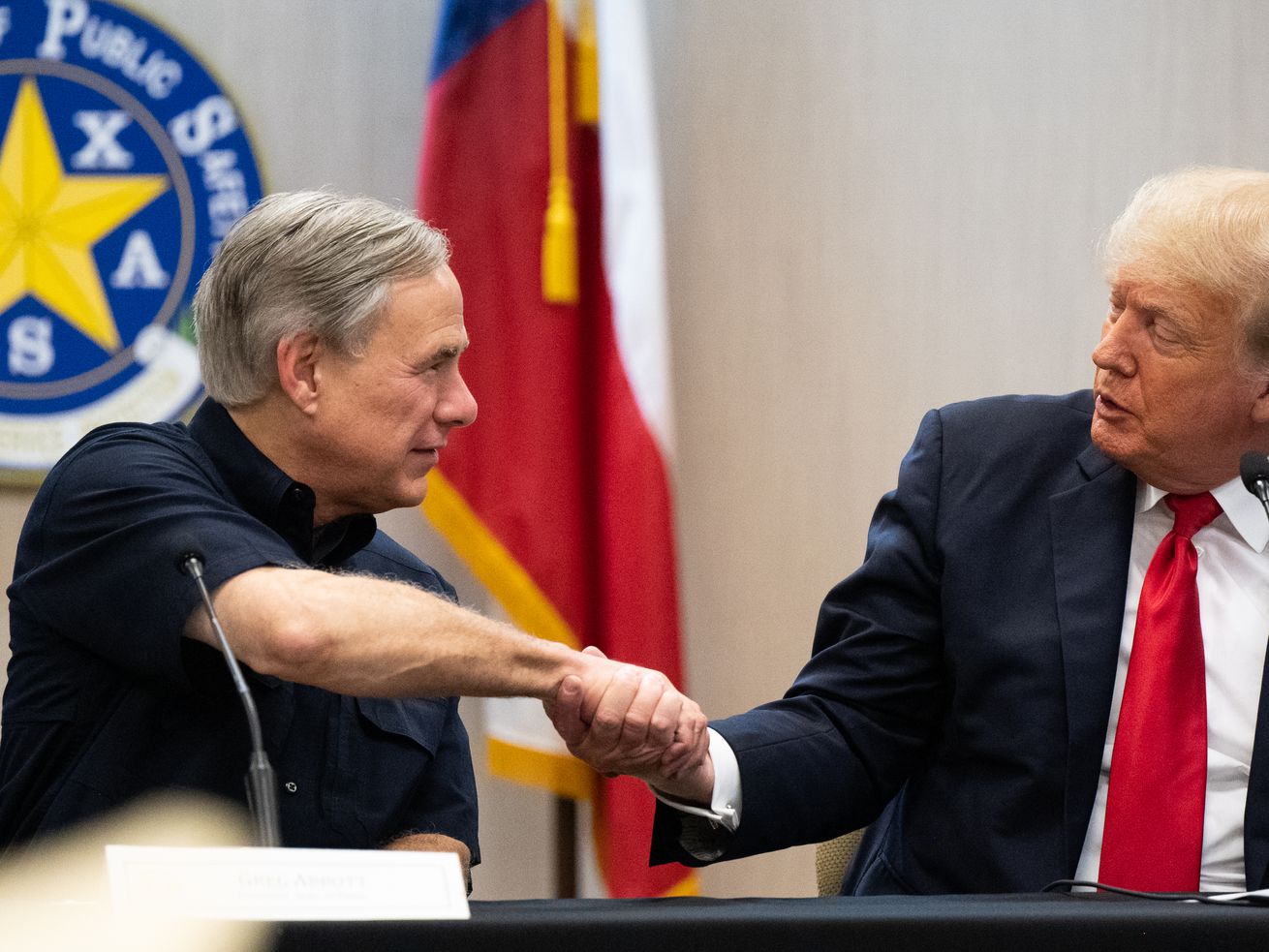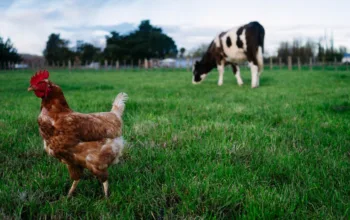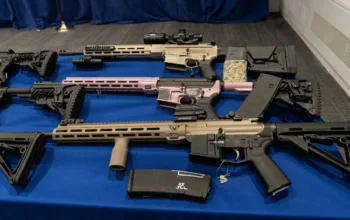Texas Democrats literally fled the state to try to block this bill.
On August 31, both houses of the Texas Legislature passed an elections bill that inspired many of the state’s elected Democrats to flee Texas in an unsuccessful attempt to block the bill. The Texas Constitution requires two-thirds of each house’s members to be present in order to approve legislation, so Democrats delayed passage of this bill by preventing the state House from achieving a quorum.
Texas’s Republican governor, Greg Abbott, is an outspoken proponent of the election bill, known as SB 1, and is expected to sign it into law.
SB 1 has morphed and changed considerably over the last several months, and the final version does not include some of the most aggressive attempts to limit voting rights that were included in previous iterations. The final version stripped a provision that would have shut down many urban polling precincts, and another that would have ended early voting on Sunday mornings, when many Black churches sponsor “souls-to-the-polls” drives.
It also doesn’t include anything resembling the most troubling provision of Georgia’s recently enacted election law, which permits Republican officials to take over election administration in Democratic strongholds such as Atlanta, which has the potential to disenfranchise voters en masse.
That said, the bill does include a number of provisions that either make it harder to vote in Texas or tweak the state’s election rules in ways that advantage Republicans.
In 2020, for example, a few polling places in Harris County, a highly Democratic area that includes Houston, remained open for 24 hours. The Republican bill bans this practice while simultaneously expanding early voting in many smaller counties — which tend to be the domain of the GOP.
Similarly, the bill imposes new restrictions on absentee voting, such as a requirement that most voters provide their driver’s license number in order to vote by mail, and a provision that makes it a felony for election officials to send unsolicited absentee ballot applications to voters. In 2020, Republicans were much less likely to vote absentee than Democrats, most likely because then-President Donald Trump repeatedly denounced mail-in ballots.
But the spike in absentee voting in 2020 is largely attributable to the pandemic — many voters did not want to risk voting in person when they could catch Covid-19 — and that concern is unlikely to play much of a role in future elections. Plus, Texas already has extremely rigid restrictions on absentee voting: Most Texans under the age of 65 may not vote by mail. So the new restrictions are likely to have only a marginal impact on voter turnout.
That could be enough to flip a very close election, but the new restrictions on absentee voting are unlikely to turn a comfortable Democratic victory into a Republican win.
One potentially troubling provision of the GOP bill requires election officials to conduct monthly purges of the state’s voting rolls, ostensibly to identify noncitizens who may have registered to vote. Another provides new legal protections to partisan poll watchers, who are permitted to observe elections and the vote-counting process — but who may also attempt to disrupt the election.
Yet, it’s worth noting that both of these provisions are less aggressive than similar provisions written into earlier versions of the bill.
No one who cares about voting rights should celebrate SB 1. It erects unnecessary barriers between voters and the franchise, and it subtly changes Texas’s election law in ways that are likely to benefit the party that wrote the bill. But much of SB 1 makes only marginal changes to Texas’s already quite restrictive voting laws.
With that overarching picture in mind, let’s dig a little deeper into the two most troubling parts of the bill.
SB 1 revives a failed effort to purge voters from the state’s voter rolls
In 2019, then-Texas Secretary of State David Whitley produced a list of nearly 100,000 registered voters he claimed might not be US citizens. And he called for a review of the state’s voter rolls to purge any supposed noncitizens.
It turned out that the list was deeply flawed.
Whitley’s office compiled the list by matching the names of registered voters against the names of Texas residents who told the state they were not citizens when they obtained a driver’s license or other ID card. But the list included many lawful voters who were not yet citizens when they received their driver’s license but were later naturalized.
Ultimately, Whitley resigned his office — he’d been serving in a temporary capacity and could not be permanently confirmed as the state’s top elections officer after he falsely accused thousands of Americans of being noncitizens. Texas also agreed to scrap the planned purge of its voting rolls as part of a settlement of three voting rights lawsuits.
Abbott later appointed Whitley to a $205,000-a-year job in the governor’s office.
SB 1 contains some language that will revive this purging effort, although with an important safeguard that wasn’t in place during Whitley’s failed 2019 purge. The purge will resume under SB 1, but the state “may not consider information derived from documents presented by the voter to the department before the person’s current voter registration became effective.”
In theory, this provision should provide a check against voters being disenfranchised if they obtained a driver’s license first and then became a citizen. A voter who obtains a driver’s license in April, becomes a naturalized citizen, and registers to vote in July could not be purged just because the state has evidence that they were not a citizen prior to July.
That said, voter purges of this sort are notoriously unreliable, often resulting in false positives among voters with common names. To give one example, there are more than 130 people named “Juan Gonzalez” living in Dallas. If just one of these individuals is a noncitizen with a Texas driver’s license, that could lead the state to falsely identify a different Juan Gonzalez as an unlawfully registered voter, especially if the noncitizen has the same birthday as a citizen with the same name.
Texas law does require the state to notify a voter swept up in such a purge and give them an opportunity to prove their citizenship. But the burden of providing such proof is likely to fall disproportionately on citizens with Spanish surnames, or on those who are otherwise disproportionately likely to be falsely flagged as noncitizens.
SB 1 could make it easier for partisan poll watchers to harass election officials
Like many states, Texas permits candidates and political parties to appoint poll watchers, who observe the voting process and the counting of ballots. In 2020, however, some poll watchers appointed by the Trump campaign in several key states behaved disruptively or made frivolous legal claims against the election officials they observed.
Earlier versions of SB 1 made it quite difficult for election officials to remove poll watchers who disrupt an election. The final version does permit the senior-most election official at a particular polling place (known as the “presiding judge”) to “call a law enforcement officer to request that a poll watcher be removed if the poll watcher commits a breach of the peace or a violation of law.” But in most cases, presiding judges cannot remove a poll watcher unless an elections official personally witnesses them violating the law.
SB 1 also makes it a Class A misdemeanor, punishable by up to a year in jail, if an elections official “intentionally or knowingly refuses to accept a watcher for service when acceptance of the watcher is required by” the law. So officials may be reluctant to remove a disruptive poll watcher out of fear they could be prosecuted and face a draconian sentence.
Indeed, one feature of SB 1 is that it imposes extraordinarily high criminal penalties on elections officials who commit minor violations. An official who “solicits the submission of an application to vote by mail from a person who did not request an application” commits a felony, as do most election officials who send an unsolicited application to vote by mail to a voter. Officials who send “an early voting ballot by mail or other early voting by mail ballot materials to a person who the clerk or official knows did not submit an application for a ballot to be voted by mail” risk up to 180 days in jail.
With such high penalties for such minor offenses, SB 1 risks discouraging qualified individuals from serving as election officials. Why take such a job if it can land you behind bars?
All that said, SB 1 is much less likely to produce the kind of widespread disenfranchisement of Democratic voters that Republicans could pull off under Georgia’s new election law. But it will make it harder for some voters to cast a ballot, and it likely foreshadows a much more consequential fight over gerrymandering in Texas.
Author: Ian Millhiser
Read More



